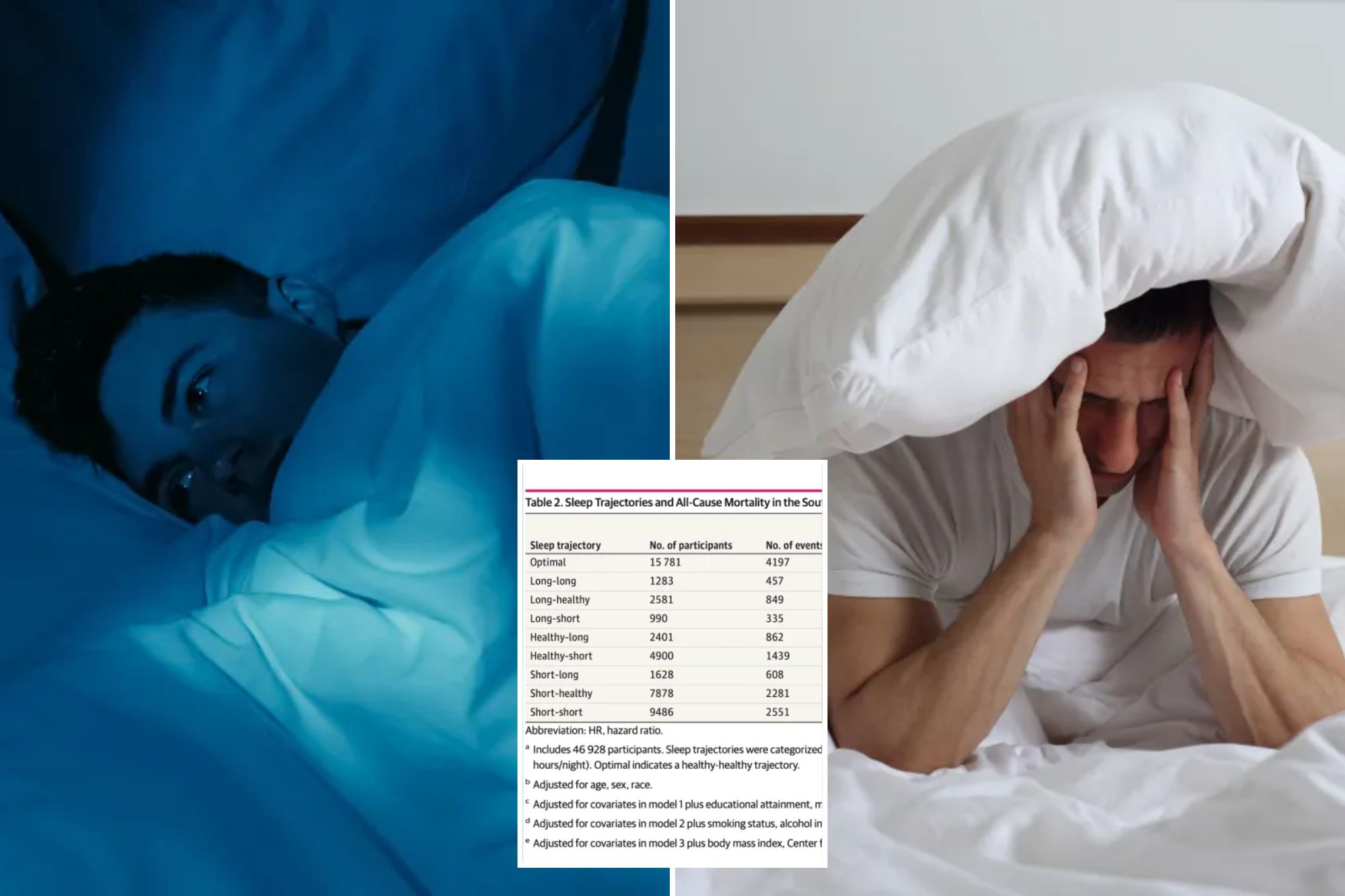
If you are sleeping eight hours one night, you are making the bedding than most.
Adults are encouraged to grab seven to nine hours for optimal health, but only 30% to 45% of Americans follow this recommendation. Poor sleep can increase the risk of dementia, Heart disease, type 2 diabetes, overweight and even certain cancers.
There is now more bad news for insomniacs – a new study from Vanderbil University reports that subpar sleep can increase the risk of premature death by up to 29%.
“This study underlines the importance of maintaining healthy sleep over time,” wrote Dayna Johnson’s sleep epidemiologist, who was not involved in the study, wrote in an accompanying editorial.
“He also raises critical questions about the potential of recovery from insufficient sleep and the time needed to turn its effects on health results,” she added.
Researchers analyzed sleep habits of about 47,000 low -income adults 40 to 79 years old. Participants shared their average sleep duration five years away.
Sleep was considered “healthy” if it lasted seven to nine hours, “short” if it were less than seven hours and “tall” if it were more than nine hours.
Sleep patterns fit into one of the nine categories. “Short length” meant that the participant initially slept under seven hours a night before passing through nine-plus hours a night over the five-year period.
About 66% of the participants had an under standard nod – they either slept less than seven hours or more than nine at a time.
The most common sleeping patterns were “short short”, “healthy” and “healthy healthy”.
“Short short” and “healthy healthy” participants were more likely to be women.
Sleeps were followed for about 12 years. More than 13,500 participants died during this time, including 4,100 of heart disease and 3,000 from cancer.
Those with “short” or “long” sleeping habits were at a particularly high risk for early death.
Researchers warned against reaching out to the findings – published Thursday in Jama Network Open – because sleep data represent only two points in time.
Still, getting good sleep is essential. Dr. YI CAI, Director of Newy York-Presbyterian sleep surgery/Columbia University Center Medical Center, shared seven healthy nod habits.
How to improve sleep
- Abstene from alcohol in front of the bed – booze can interfere with the later stages of sleep, especially the deep sleep of Rem, leaving you bored and undisturbed.
- Avoid large foods two to three hours before bedtime as they can cause acid, indigestion, or sleep disruption.
- Keep your bedroom cool, dark and smooth. A cold room helps the body naturally lower its temperature, which promotes sleep. Use intermittent curtains or a bedroom mask to block light and ear ears or a white noise machine to minimize interruptions.
- Start your day with bright light – preferably sunlight – to help adjust your body’s interior clock, but avoid blue light from phones, tablets and computers at least an hour before bed.
- Go to bed and wake up at the same time every day – even on weekends – to keep the interior on the right track.
- Exercise regularly to reduce anxiety, depression and overall stress – but do not do it three to four hours before bed because physical activity can raise heart rate and body temperature, making it difficult to release.
- Consult a sleep specialist if you snore, experience fatigue during the day and feel shameless despite a complete night’s sleep. These symptoms can indicate sleep apnea, a common condition that makes you stop breathing during sleep.
#sleep #habits #kill #faster #tips
Image Source : nypost.com